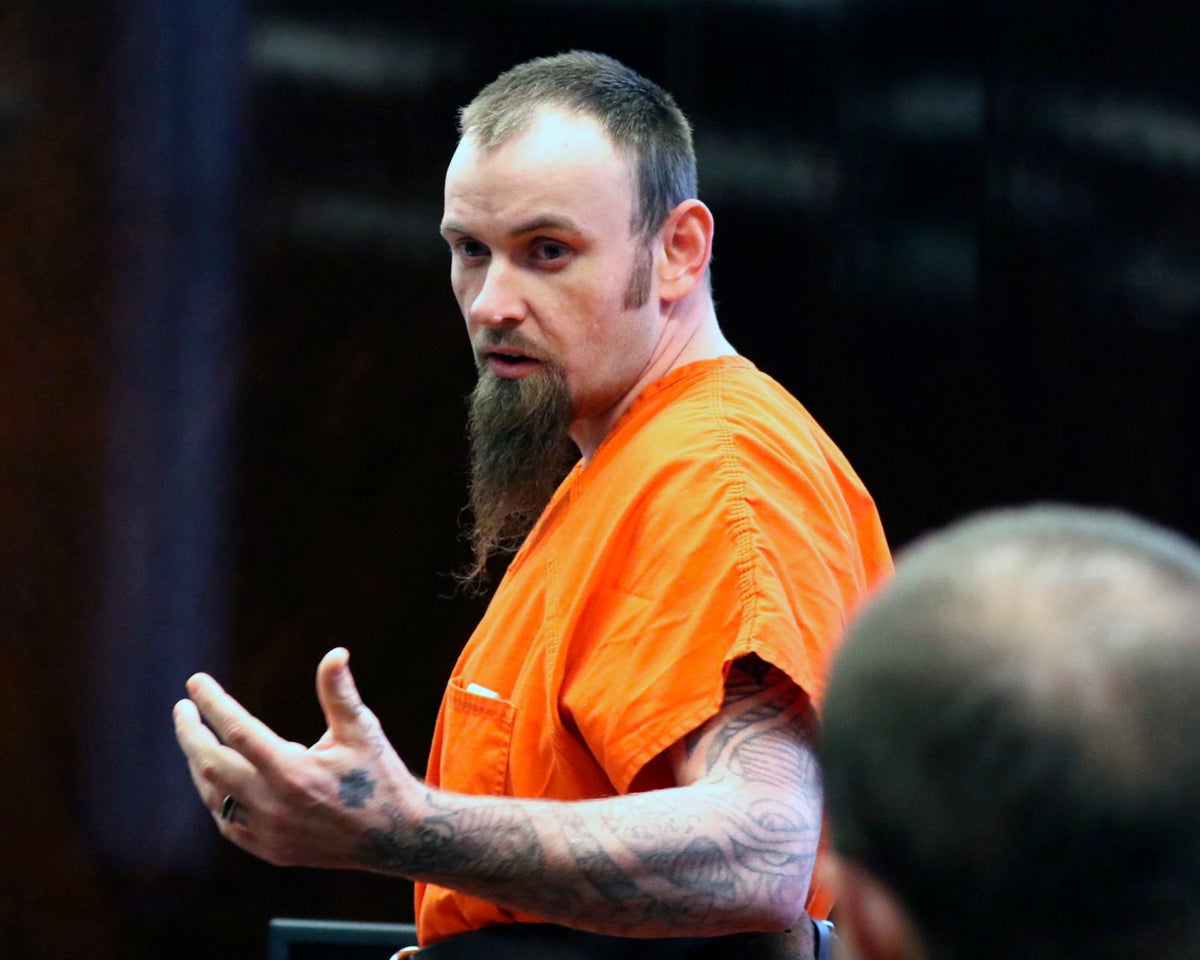
Jason Arnie Owens helped carry his father’s casket to the hearse, then turned to embrace a relative. He never made it to the cemetery.
As mourners gathered outside a northern West Virginia funeral home on Aug. 24, two plainclothes officers with a fugitive warrant swooped in from separate vehicles, called Owens' name and shot him dead, spattering his 18-year-old son's shirt with blood as horrified loved ones looked.
"There was no warning whatsoever,” family friend Cassandra Whitecotton said.
In the blink of an eye, stunned friends and family already mourning one member lost another. Now, they want answers — not just why Owens was shot but why the encounter happened the way it did.
Law enforcement officials aren't explaining much right now, citing an ongoing investigation. Owens, 37, was wanted on a fugitive warrant, but the U.S. Marshals Service hasn't said what it was for. The agency also said in a statement that he had a gun when members of a fugitive task force approached. Multiple witnesses contend that's not true.
Whitecotton and others who stood just feet away said Owens was unarmed, had been hugging his aunt, Evelyn O’Dell, and was fired on immediately after his name was called. Witnesses also dispute the U.S. Marshals' assertion that first aid was performed right away, before emergency medical services arrived.
"They yelled Jason’s name. They just said ‘Jason’ and then started firing,” Whitecotton said. “There was no identifications they were U.S. Marshals — anything. They did not render this man any aid at all. Never once they touched him to render any aid whatsoever.”
As relatives prepared for services Friday for Owens, a state police investigation of the shooting was underway. But patience in the community is wearing thin.
Relatives and supporters protested outside the Harrison County Courthouse last week, accusing law enforcement authorities of overreach in the death of Owens, who was white. A Facebook page called Justice for Jason Owens has swelled to about 800 members — more than half of the population of Nutter Fort, where Owens was killed.
Underlying the unanswered questions is whether some boundary of decency had been crossed in arresting a man in the midst of burying his father.
“If they’ve been searching for someone and they finally figure out where they are, they’re going to get them,” said Tracy L. Hahn, a Columbus, Ohio-based security consultant who retired after 32 years in law enforcement, including as deputy police chief at Ohio State University.
Hahn said she knows agencies that have gone to funerals but have waited until afterward to approach the person.
“There must be some extenuating circumstance that they felt the urgency to arrest him then instead of waiting, if there was some risk factor, an escape risk or something like that,” Hahn said.
Family members aren’t so sure. They say it only adds to their sense of disrespect that the agencies involved feel no obligation to address their questions.
“We want to know why you would do this in front of his family,” said Owens’ cousin, Mandy Swiger. “And what gives you the right to do that to an unarmed man?”
Acting U.S. Marshal Terry Moore said he couldn’t answer questions during the investigation and messages left with state police weren’t returned.
It’s not clear whether video exists from police bodycams, a police vehicle dashboard or the funeral home itself. Unlike major cities where detailed incident reports and video footage are released after fatal police shootings — sometimes within hours — that rarely happens in West Virginia.
West Virginia law exempts police from having to release video footage during an investigation. And the U.S. Marshals Service office said it did not write a detailed incident report about the shooting, referring to the news release that withheld Owens’ name and other details.
Owens had been in trouble with the law before. He was sentenced in 2018 to three to 13 years in prison for fleeing a Harrison County sheriff’s deputy and trying to strangle him during a scuffle. He was released on parole in April 2021.
But Swiger said he committed a parole violation “for not checking in just once. And that’s why he promised his mom after the funeral he would turn himself in.”
Whitecotton said she was smoking a cigarette after the service when an SUV came flying down the side street where the hearse would pull out.
"It about hit me, so I jumped back up on the curb and kind of looked at him like, ‘What’s your problem?’” she said. A man in shorts and a T-shirt jumped out, leaving his door open.
Swiger said a white truck with another plainclothes officer inside almost hit her mother’s vehicle as the truck sped into the parking lot. Swiger said Owens was shot from different directions and estimated as many as 40 people were in the area. She, too, said she didn't see a gun in Owens' hands.
Some mourners instinctively rushed toward Owens after he fell to the ground, Swiger said, but were told by one of the officers, “You step back or I’ll shoot you.”
Whitecotton said she has lived in much larger cities such as Houston, Dallas and Fort Worth.
“Never in my life have I dealt with anything like this,” she said. "I would expect it there, honestly. But not here.”







